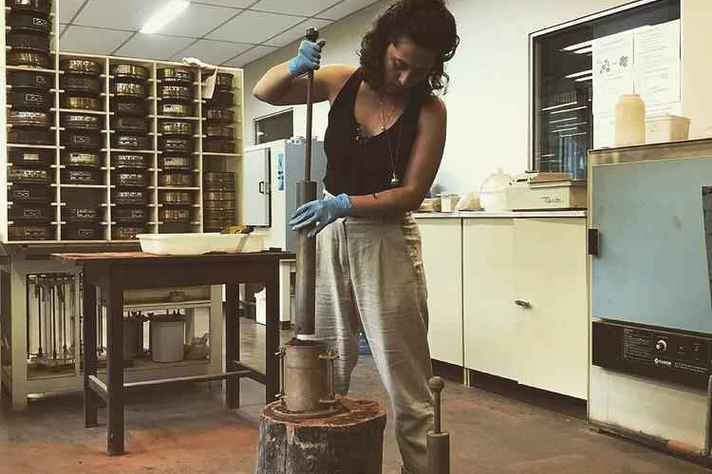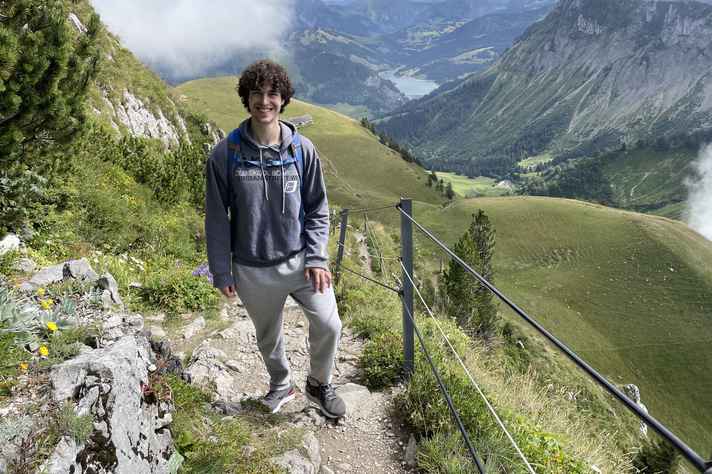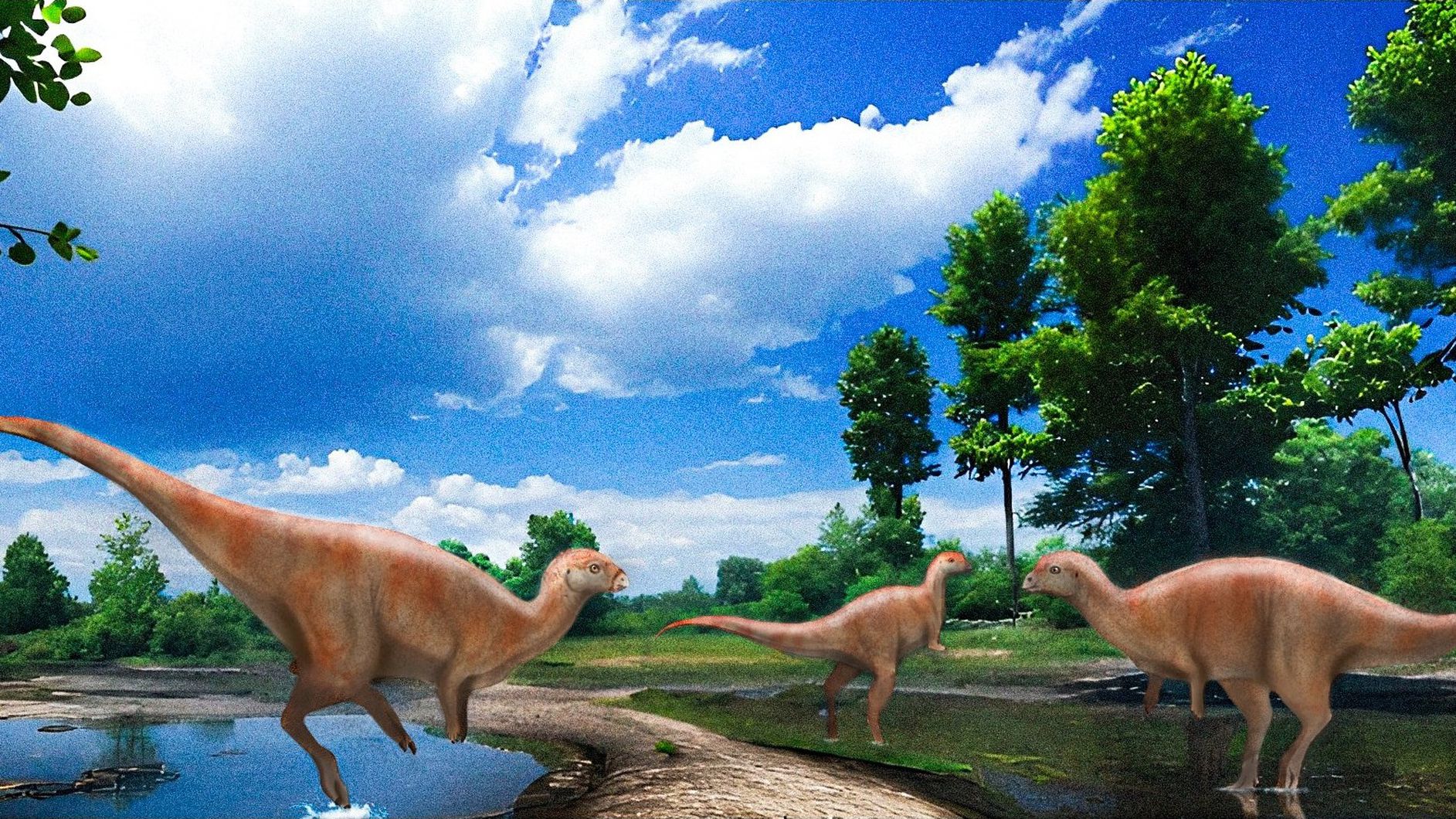
Episode 88 of the show another station, of Rádio UFMG Educativa, addresses the main difficulties faced by those working or intending to work as a scientist in Brazil. The report highlights a decline in federal investment in science and technology in the past decade, a trend that makes scientific research difficult and in some cases impossible. For this reason, some students and professionals seek better working conditions in other countries. The phenomenon known as “brain drain” is one of the programme’s themes.
a another station Interview with Allen Rock, Graduated in Civil Engineering from UFMG and MSc in Geotechnical Engineering from University of Sao Paulo (USP). Allen explains why she decided to study for her PhD in Hong Kong, on the Asian continent, and why she plans to stay there even after completing her thesis. Another character on the report is Antonio Horta Ribeiro, a graduate, master’s, and doctor of electrical engineering from UFMG. Since 2021, Ribeiro has been working as a researcher at a university in Sweden, with no plans to return to Brazil. Like Allen, he also criticizes the devaluation of scientific life in his homeland.
The scenario of discouraging work in science and technology was also taken up by three other interviewees: Mauro TeixeiraVice President of Minas and Midwest Regional Brazilian Academy of Sciences and Professor in the Department of Biochemistry and Immunology at UFMG, Flávia Cali, Chair National Graduate Student Association (ANPG), and Ana Maria Carneiro, Coordinator of the Higher Education Studies Laboratory and Study Group on Research and Innovation Organization, both associated with Campinas State University (UNICAM).
Less resources, fewer jobs, more doctors
The first set of the program provides data showing declining federal investment in science and technology. Taking into account all the federal government spending in this sector, investments increased almost continuously from 2003 to 2013, but began to decline in 2014, and worsened in the following years. The total amounted to R$17.2 billion in 2020, compared to R$19 billion applied in 2009, in inflation-adjusted values stated in a technical note issued by Fernanda de Negri, economist at the Institute for Applied Economic Research (Ipea), associated with the Ministry of Economy .
On the other hand, the number of doctoral degrees awarded annually in Brazil has been growing at least since 1996 – the exception being a slight decrease between 2009 and 2010. This was based on official data conducted by Fundação de Amparo à Pesquisa do Estado offers. From Sao Paulo (Fapesp). Some young doctors find it difficult to get a job not only because of the lack of public investment, but also because of the lack of options for working in the private sector.
The first element also highlights the status of graduate students. Most of them cannot get scholarships. Others are studying with grants funded by the two major funding agencies, the Coordination for the Improvement of Higher Education Personnel (Capes) and the National Council for Scientific and Technological Development (CNPq), which have not adjusted their values since 2013.
migration

second block of another station It addresses the fact that low investment in science and technology is often cited as the reason for the increasing emigration of Brazilian researchers to other countries. This evasion is conditional on the phrase “brain drain”. However, the use of this term is not always appropriate, explained Professor Ana Maria Carneiro, who since 2017 has studied the phenomenon she classifies as the Brazilian diaspora of science, technology and innovation. The “brain drain” will only occur when the members of this diaspora, once installed in other countries, have no interest in contributing to Brazil.
Ana Maria Carneiro and others we interviewed reported information indicating that researcher emigration is on the rise. Specialists also discuss measures to encourage these professionals to remain in Brazil or, in the case of colleagues who have decided to emigrate, to collaborate with Brazilian scientific production.
to know more
Technical note Public policies for science and technology in Brazilproduced by economist Fernanda de Negri (Ipea)
FAPESP . scan On the number of doctoral degrees awarded annually in Brazil
A petition launched by ANPG In favor of amending postgraduate scholarships
The latest edition, published in 2021, from UNESCO Science Report
Produce
Episode 88 of another station It was presented by Alicianne Gonçalves. Production is by Amelia Gomez and Thiago de Hollanda, who are also responsible for editing. Artworks by Claudio Zaza. The Interim Press Coordinator at Rádio UFMG Educativa is Alicianne Gonçalves, and Guilherme Amintas is the Interim Programming Coordinator.
In its second season, the show is broadcast every two weeks, Thursdays at 6 pm, and it is repeated on Fridays at 7 am. Episodes can also be heard on podcast apps like spotify.

“Hardcore beer fanatic. Falls down a lot. Professional coffee fan. Music ninja.”



:strip_icc()/i.s3.glbimg.com/v1/AUTH_b0f0e84207c948ab8b8777be5a6a4395/internal_photos/bs/2024/n/1/CsPdEiRHCKqd17AxdwJA/befunky-collage-2024-04-19t235553.245.jpg)


More Stories
Wild Titanosaurus | New species of dinosaurs have been described in Bahia
The World Health Organization approves a simplified cholera vaccine in the face of shortages The world and science
Salgueiro Saúde 2024: 53 vacancies and salaries up to R$ 12,081!